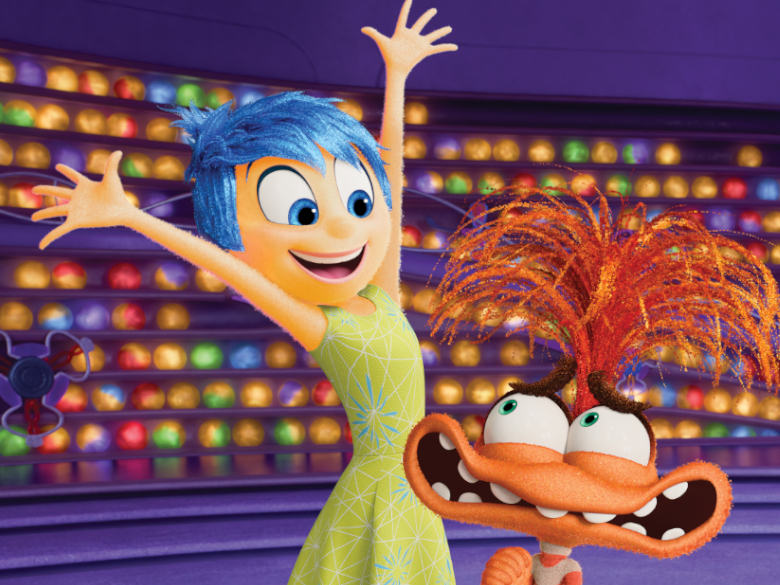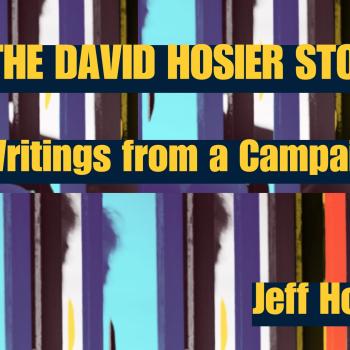
Can anxiety work for you instead of joy? This is the question that Pixar’s “Inside Out 2” seems to ask its viewers at the start of the movie.
As Riley experiences puberty, she faces the daunting challenge of meeting new friends, adjusting to peer pressure and forming a new sense of self. Suddenly, a new set of complex emotions pop up in her head, taking control of her new life and forcing her to let go of her old emotions – even Joy!
Should joy take a backseat when it comes to your teenage years? How far can anxiety take control to let you scan your new environment, face uncomfortable decisions and give your goals a hundred percent of your efforts?
Anxiety’s Claim
When Anxiety first came onto the scene, it appeared to be a friendly and excited emotion who wanted to belong to the group. When it greeted Joy, one can easily think that Anxiety is even a fan!
But as Riley went to puberty, Anxiety wanted to be more in control. For Anxiety, Riley now needs more complex emotions to meet the new challenges in her life.
Riley shouldn’t be content with just hanging around and being happy with her old friends. She should be doing something to form new ones and excel in what she does. So instead of spending her remaining time with the old gang, Anxiety pulls her away and makes her join an elite hockey team.
Of course, Joy and the other older emotions protest! But Anxiety captured them and held them under lock and key.
When Anxiety Goes Out of Control
Anxiety is one emotion that seems to have too much energy. It never seemed content to introduce Riley to a new set of friends. It worried about being an outcast. It imagined endless scenarios that could make Riley’s life miserable. And it worked itself to exhaustion for Riley to make it to the hockey team.
However, while it saw itself working for Riley, it soon ended up working against her. It wanted to form a new set of beliefs without her consent. It disregarded Riley’s other memories and emotions. Last but not least, it paralyzed itself at that crucial moment when Riley’s entire sense of self could be totally destroyed.
Isn’t this what anxiety does in real life? At first, it tries to justify its purpose by trying to caution us against negligence and complacency. But as it maps out every worst-case scenario in our head, we find ourselves battling for our every breath!
Instead of energizing us, it paralyzes us. Instead of helping us achieve our goals, it works against us in the end.
Joy’s Journey of Maturity
Fortunately for Riley, Joy and the other emotions did not give up. Even when pushed at the very back of her consciousness, they scrambled to save her sense of self and consequently, her well-being.
It was not an easy journey, however. Joy, who was so used to just being “joyful” almost turned into Sadness as she tried to accept that growing up could also mean having less joy.
This is the second time that Joy learned something through Riley’s life. In the first movie, she learned that even Sadness has a role when it comes to Riley’s well-being. It was such a touching part when Joy finally acknowledged how Joy and Sadness can work together and create something meaningful and good.
Now, Joy has matured more in the sense that she admitted the reality of being less present in Riley’s life while not letting go of her duty to protect Riley’s beliefs and sense of self.
Riley’s Control Panel
The showdown between Anxiety and Joy is a battle about Riley’s control panel. Which emotion should take control at the moment? What move can help Riley the most?
It will not serve Riley any good if every emotion just grabs the control panel whenever they wish! That’s how things messed up when Anxiety took control.
Perhaps that’s why they seem to have put Joy as the unofficial leader. And that’s the same reason why she needed to undergo her own journey of maturity.
Memories and Beliefs
It is interesting to note the connection shown in the movie about memories and beliefs. It is said that memories form beliefs. In return, beliefs allow Riley to form one’s sense of self.
It’s no wonder why Joy was so keen on protecting these beliefs. Without them, Riley will feel lost, unable to tell who she is, what matters most to her and how she acts at various points in life.
How I would have cheered more had Riley also been given religious memories and beliefs.
These would have guided her in difficult times and allowed her to overcome her many worries.
Growing up, I remember many Bible verses that allowed me to form a belief against needless anxiety.
“Do not worry about anything, but in everything by prayer and supplication with thanksgiving let your requests be made known to God. And the peace of God, which surpasses all understanding, will guard your hearts and your minds in Christ Jesus.” – Philippians 4:6-7 (NRSVCE)
“And can any of you by worrying add a single hour to your span of life? …So do not worry about tomorrow, for tomorrow will bring worries of its own. Today’s trouble is enough for today.” – Matthew 6 (NRSVCE)
The Connection Between Mental Health and Spiritual Well-Being
I think the movie was not able to directly show the connection between mental health and spiritual well-being. The absence of religious memories and beliefs failed to let the viewers know the possible impact of one’s spirituality to one’s mental wellness.
It should be noted that per a 2023 survey by Skylight, 61% of Americans connect to a Higher Power and 45% pray to feel less anxious. (Skylight is a non-denominational platform that integrates mental well-being and spiritual practices, aiding people in overcoming stress, anxiety and other mental issues. Skylight also collaborated with Patheos to explore this film’s portrayal of the interconnection between mental wellness and spirituality.)
While Disney may not want to adhere to a particular religious belief, it may have neglected one of the main factors that can alleviate anxiety and other negative emotions affecting people’s lives.
In Skylight’s article “Can Spirituality Help With A Generational Mental Health Crisis?”, it noted that 57% of GenZennials admitted that “spiritual/religious practices positively impact their mental health”. Of this generation, 1/3 needed help establishing their morning and evening routines.
The Catholic Perspective on Mental Health
Pope Francis once said, “I’m convinced that every priest must know human psychology.”
Meanwhile, during the World Day of the Sick in 2006, Pope Benedict XVI stated:
“On this occasion, the Church intends to bow down over those who suffer with special concern, calling the attention of public opinion to the problems connected with mental disturbance that now afflicts one-fifth of humanity and is a real social-health care emergency….”
The Catholic Church recognizes the importance of one’s mental health and the various means of alleviating one’s mental health issues.
It should be noted, however, that this in no way undermines the role of faith in managing one’s mental health condition.
Even the saints have recognized the impact of our negative emotions and recommended spiritual remedies to overcome them.
“Pray, hope, and don’t worry. Worry is useless. God is merciful and will hear your prayer.” – Padre Pio
“Bring [your heart] quietly back into God’s presence, subjecting all your affections and desires to the obedience and direction of his divine will.” – St. Francis de Sales
“Let nothing disturb you,
Let nothing frighten you,
All things are passing away:
God never changes.
Patience obtains all things
Whoever has God lacks nothing;
God alone suffices.”
– St. Teresa of Avila
The Catholic Joy That Overcomes Anxiety
More than anything else, I think the Catholic faith allows Joy to shine even in the midst of adversity. Joy in Christ is a Catholic weapon against worry, stress and other negative emotions that threaten to rob one’s peace of mind.
In Mother Teresa’s own words, here is what it’s like to have this kind of joy:
“Joy is prayer; joy is strength: joy is love; joy is a net of love by which you can catch souls.”
“Joy is a sign of generosity. When you are full of joy, you move faster and you want to go about doing good to everyone.”
The Catholic perspective is one that has learned what True Joy is about.
In the Disney film, we also see the role of the emotion Joy.
It was Joy who was able to calm Anxiety when everything went out of control. Joy was also the one who found a way to help Riley manage her complex emotions.
In that crucial part of the film where Joy lovingly embraced all of Riley’s sense of self, however, it wasn’t explained why she did that.
How can Joy not disappear in the face of pain, worry and doubt?
In Riley’s darkest hour, Joy must have discovered who she truly is.
Joy must have learned that she isn’t just a fleeting emotion like amusement or excitement. She isn’t someone who is always supposed to have that “happy vibe”. True joy is one that is deep and lasting.
What she showed Riley wasn’t just passive acceptance. Only a deep and all-encompassing love can be the answer!
As a Catholic, I can’t imagine having this kind of love without knowing Christ. Such is the religious belief that can transform joy from that of fleeting happiness to a deep, strong and eternal one.
It is this joy that gives me hope in times of despair, strength in times of weariness and courage in times of anxiety. I have this joy because I have Him who is Joy Himself! Someone who loves me and who assures me that whatever I may go through, I will never be alone.
“So you have pain now; but I will see you again, and your hearts will rejoice, and no one will take your joy from you.” – John 16:22 (NRSVCE)
“Come to me, all you that are weary and are carrying heavy burdens, and I will give you rest.” – Matthew 11:28 (NRSVCE)


















